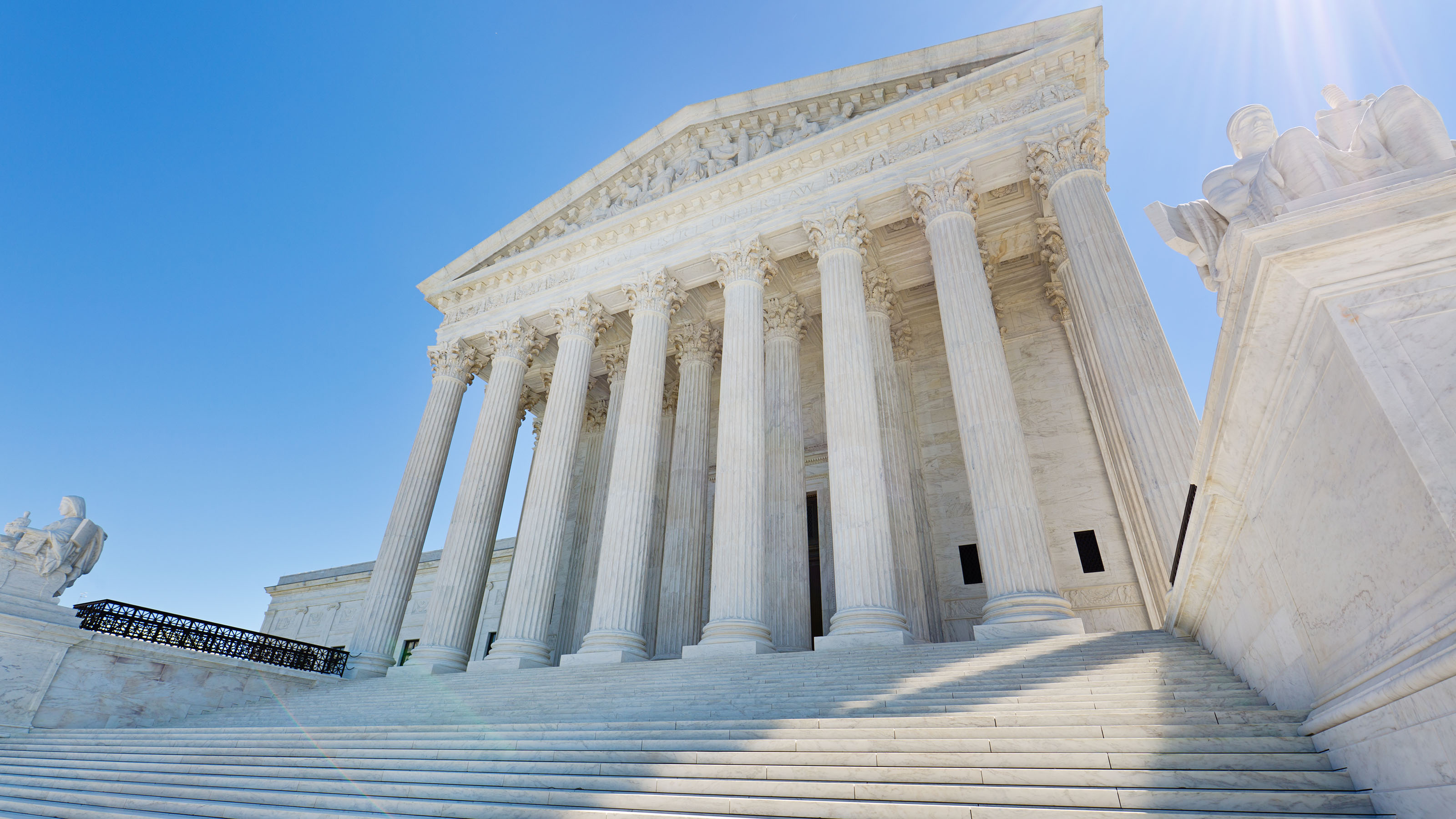Supreme Court Upholds Health Law; Now the Work Begins
As businesses and consumers prepare for new insurance rules, Republicans in Congress will try to overturn the health care law.

Profit and prosper with the best of Kiplinger's advice on investing, taxes, retirement, personal finance and much more. Delivered daily. Enter your email in the box and click Sign Me Up.
You are now subscribed
Your newsletter sign-up was successful
Want to add more newsletters?

Delivered daily
Kiplinger Today
Profit and prosper with the best of Kiplinger's advice on investing, taxes, retirement, personal finance and much more delivered daily. Smart money moves start here.

Sent five days a week
Kiplinger A Step Ahead
Get practical help to make better financial decisions in your everyday life, from spending to savings on top deals.

Delivered daily
Kiplinger Closing Bell
Get today's biggest financial and investing headlines delivered to your inbox every day the U.S. stock market is open.

Sent twice a week
Kiplinger Adviser Intel
Financial pros across the country share best practices and fresh tactics to preserve and grow your wealth.

Delivered weekly
Kiplinger Tax Tips
Trim your federal and state tax bills with practical tax-planning and tax-cutting strategies.

Sent twice a week
Kiplinger Retirement Tips
Your twice-a-week guide to planning and enjoying a financially secure and richly rewarding retirement

Sent bimonthly.
Kiplinger Adviser Angle
Insights for advisers, wealth managers and other financial professionals.

Sent twice a week
Kiplinger Investing Weekly
Your twice-a-week roundup of promising stocks, funds, companies and industries you should consider, ones you should avoid, and why.

Sent weekly for six weeks
Kiplinger Invest for Retirement
Your step-by-step six-part series on how to invest for retirement, from devising a successful strategy to exactly which investments to choose.
Now that the Supreme Court has upheld President Obama's sweeping health care reform law, employers, insurers and states that put off preparations during the legal fight will have to rush to meet deadlines.
SEE ALSO: What the Ruling Means for Health Care Stocks
The ruling is a sweeping victory for the president, but is sure to enrage conservatives as the election approaches. Congressional Republicans immediately said they would try to repeal and replace the law, but that will be a difficult climb as long as Obama remains in office.
From just $107.88 $24.99 for Kiplinger Personal Finance
Become a smarter, better informed investor. Subscribe from just $107.88 $24.99, plus get up to 4 Special Issues

Sign up for Kiplinger’s Free Newsletters
Profit and prosper with the best of expert advice on investing, taxes, retirement, personal finance and more - straight to your e-mail.
Profit and prosper with the best of expert advice - straight to your e-mail.
If Obama is reelected, he'll veto any attempt to kill or weaken the law and his regulators will move ahead with implementing it. But if Republican Mitt Romney wins the Oval Office, all bets are off. Even if Senate Democrats are able to bottle up any "repeal and replace" legislation, Romney could scuttle the law. It gives broad authority to the regulatory agencies, and Romney could simply have the agencies delay rules or refuse to enforce those already on the books, says Chantel Sheaks of Buck Consultants.
The mandate that all Americans have health insurance or pay a penalty takes effect in 2014. The Congressional Budget Office estimates that 4 million workers will sign up for the first time, which will mean additional costs for their employers.
But other provisions kick in sooner. For example, by October of this year, employers must provide workers with a four-page, easy-to-read summary of benefit coverage. And next year, they have to prepare W-2s that include the value of a worker's health care coverage.
Another big deadline, in the spring of next year, requires employers to give workers information on how state exchanges and government subsidies will operate. Many of those details are still being worked out.
Other key elements of the law of interest to employers take effect in 2014, including the "employer responsibility" provisions that may subject employers with 50 or more workers to penalties; incentives to encourage individuals to engage in employer wellness programs; and requirements to automatically enroll workers into a health plan.
States that decided to hold back on developing exchanges until the Supreme Court ruled will also need to kick into high gear. About one-third of states are in this category, and they may not be able to meet the Jan. 1, 2014, deadline. Until they are ready, the federal government will step in with its own exchange or partner with states to provide some services.
Profit and prosper with the best of Kiplinger's advice on investing, taxes, retirement, personal finance and much more. Delivered daily. Enter your email in the box and click Sign Me Up.

-
 5 Vince Lombardi Quotes Retirees Should Live By
5 Vince Lombardi Quotes Retirees Should Live ByThe iconic football coach's philosophy can help retirees win at the game of life.
-
 The $200,000 Olympic 'Pension' is a Retirement Game-Changer for Team USA
The $200,000 Olympic 'Pension' is a Retirement Game-Changer for Team USAThe donation by financier Ross Stevens is meant to be a "retirement program" for Team USA Olympic and Paralympic athletes.
-
 10 Cheapest Places to Live in Colorado
10 Cheapest Places to Live in ColoradoProperty Tax Looking for a cozy cabin near the slopes? These Colorado counties combine reasonable house prices with the state's lowest property tax bills.
-
 Is a New $25,000 Health Care Tax Deduction Coming in 2026?
Is a New $25,000 Health Care Tax Deduction Coming in 2026?Tax Policy A proposal from GOP Sen. Josh Hawley adds to the chatter about health care affordability.
-
 Money for Your Kids? Three Ways Trump's ‘Big Beautiful Bill’ Impacts Your Child's Finances
Money for Your Kids? Three Ways Trump's ‘Big Beautiful Bill’ Impacts Your Child's FinancesTax Tips The Trump tax bill could help your child with future education and homebuying costs. Here’s how.
-
 Key 2025 Tax Changes for Parents in Trump's Megabill
Key 2025 Tax Changes for Parents in Trump's MegabillTax Changes Are you a parent? The so-called ‘One Big Beautiful Bill’ (OBBB) impacts several key tax incentives that can affect your family this year and beyond.
-
 Will EVs Drive the Vote in Election 2024 Swing States?
Will EVs Drive the Vote in Election 2024 Swing States?Tax Credits Electric vehicle tax credits have somehow become controversial. So car buyer attitudes in swing states might make a difference.
-
 How Four Recent Supreme Court Rulings Impact Your Money
How Four Recent Supreme Court Rulings Impact Your MoneySupreme Court Some U.S. Supreme Court decisions could affect your finances. Here’s what you need to know.
-
 Are Student Loans Being Forgiven or Not?
Are Student Loans Being Forgiven or Not?Student Loans The House and Senate voted to repeal President Biden’s student loan forgiveness plan, but does it even matter?
-
 Etsy, eBay, PayPal Want IRS 1099-K Relief for Online Sellers
Etsy, eBay, PayPal Want IRS 1099-K Relief for Online SellersIncome Tax Companies like eBay, Etsy, and PayPal want Congress to raise the $600 reporting threshold for IRS Form 1099-K to give relief to millions of sellers who use their sites.
-
 Student Loan Forgiveness Blocked For Now Due to Court Rulings
Student Loan Forgiveness Blocked For Now Due to Court RulingsBiden's student loan debt forgiveness program is on hold until the U.S. Supreme Court weighs in.